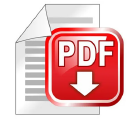Tourism Observatory
The "GITT Sector Tourism Observatory" is the think-tank for international and strategic investigation of the Governmental and Institutional Travel and Tourism (GITT) sector. Our objective is to promote and develop the knowledge of this new GITT sector through a forum of analysis and debate, which will allow the introduction of new knowledge, ideas, thoughts, as well as reflections that will be useful for the decision making process of the different intervening agents that participate in this typology of travels.
Access to complete information
Papers Download
Areas of activity
Security
Security and health correspond to various areas as far as government and institutional travel is concerned. However, the coronavirus crisis can be a starting point to reflect on new elements to be taken into account in relation to the security of the Delegation members.
Protocol
The new preventive measures will contribute to the restructuring of the protocol norms in the short and medium term. Professionals in the sector must carry out an in-depth study to make the existing protocol norms compatible with health needs.
Impact on destination
The COVID-19 has caused a worldwide halt in the movement of people, leading to a great decline in tourism activity in all its forms and destinations. In addition, the economies of the various countries affected by the pandemic have fallen to a greater or lesser extent and their GDPs have been equally affected, increasing the impact of the disease on destinations.
Impact on suppliers
Due to the economic standstill that has occurred in many countries, caused by the confinement measures taken by their governments in relation to the COVID-19, the tourism providers that participate in governmental and institutional travel have been affected, not only by the obligation to cease their activity, but also by the paralysis in the movement of people, both nationally and internationally.
Events
Comunication/Press
Sustainable Tourism
The impact of the health crisis on tourism is clear. With a view to reopening tourism activity, it is necessary to assess essential aspects related to the sustainability of the sector. The situation we are facing requires a systematic evolution and change in tourism structures.
Diplomacy
Diplomatic relations now have a fundamental role to play in restoring the links that may have been damaged or paralysed by the crisis. A significant increase in government and institutional travel to meet these objectives is foreseeable.
International Relations and Cooperation
As a consequence of the situation caused by the COVID19 , governments and institutions are carrying out a series of actions and measures that will have an impact on political and trade relations between countries and institutions; analysis of discontent and gratitude for a substantial change in the international political map.
Institutions
The crisis management has been different in each territory. The responsibilities and successes arising from this situation may have consequences at the institutional and organizational level. This crisis can lead to important changes in the internal structure of countries, as well as in public figures and leaders during this crisis situation.


